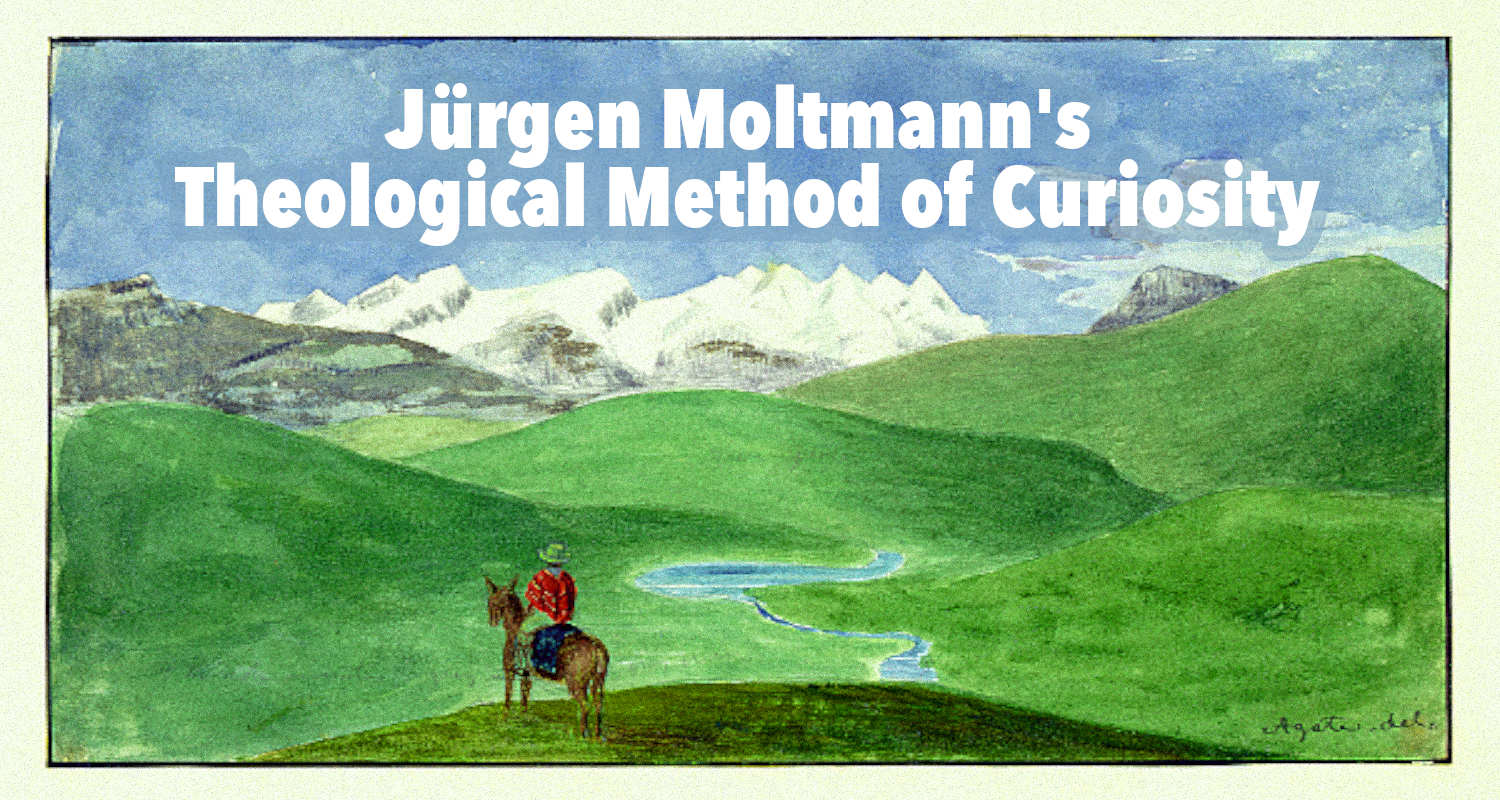
(Revised and updated on March 29th, 2019)
What is Jürgen Moltmann's theological method? He says it is Curiosity! A curiosity for adventure and discovery into an unknown country. In the following quotation from the Jurgen Moltmann: Collected Reader, he explains that he is his own theological method, such that theology is a 'journey of exploration' and that curiosity is his theological virtue, allowing him to identify truth wherever it is encountered. I enjoy reading Moltmann because his writings because he says new things that were not said before, and provides valuable systematic contributions, yet at the same time his writings are not burned with excessive theological proofs like the small print sections in Karl Barth's Church Dogmatics. Ultimately, the theological proofs are necessary and the small print must be written, but they may come later.
Jürgen Moltmann says "[..] a tremendous adventure, a journey of discovery into a, for me, unknown country, a voyage without the certainty of a return, a path into the unknown with many surprises and not without disappointments. If I have a theological virtue at all, then it is one that has never hitherto been recognized as such curiosity.
Much of Moltmann's theological discoveries are due to his unique way of reading and interpreting the bible. Moltmann explains his curiosity is not an individual adventure, but an expedition by a community.
Jürgen Moltmann continues to say "I have never done theology in the form of a defense of ancient doctrines or ecclesiastical dogmas. It has always been a journey of exploration. Consequently, my way of thinking is experimental—an adventure of ideas—and my style of communication is to suggest. I do not defend any impersonal dogmas, but nor do I merely express my own personal opinion. I make suggestions within a community. So I write without any built-in safeguards, recklessly as some people think. My own propositions are intended to be a challenge to other people to think for themselves—and of course they are a challenge to objective refutation too. Theologians also belong to the communio sanctorum, the communion of the saints, provided that the true saints are not merely justified sinners but accepted doubters too, thus belonging just as much to the world as to God." [2]
Moltmann did not write a Systematic theology and he distinguished himself from the fortress builders of Summas and Systematic Theologies like Karl Barth's Church Dogmatics or Friedrich Schleiermacher's Christian Faith, because these great fortresses are impenetrable allowing no assailants in from outside and not allowing any denizens to go outside, leading to the starvation of those who are trapped inside these great theological systems.
Jürgen Moltmann then says "Theology is a community affair. Consequently theological truth takes the form of dialogue, and does so essentially, not just for the purposes of entertainment. There are theological systems which are not only designed to be non-contradictory in themselves, but aim to remain undisputed from outside too. They are like fortresses which cannot be taken, but which no one can break out of either, and which are therefore starved out. I have no desire to build any such fortress for myself. My image is the exodus of the people, and I await theological Reed Sea miracles. For me theology is not church dogmatics [like Karl Barth's Church Dogmatics], and not a doctrine of faith [like Friedrich Schleiermacher's Christian Faith]. It is imagination for the kingdom of God in the world, and for the world in God's kingdom. This means that it is always and everywhere public theology, and never, ever, a religious ideology of civil and political society—not even so-called Christian society. Some people think that I say too much theologically, and more about God than we can known. I feel profoundly humble in the face of the mystery that we cannot know, so I say everything I think I know." [3]
Jürgen Moltmann: Collected Readings is a helpful epitome of Moltmann's systematic contributions and important writings.
Sources:
1. Jürgen Moltmann. Jürgen Moltmann: Collected Readings. Trans. Margaret Kohl. Minneapolis: Fortress, 2014. 205. Print. [Comments in square brackets were added]
2. Ibid.
3. Ibid.
4. Header image includes a background painting of the Andes near Alparmarca, Peru (source: wikipedia)



Leave a comment